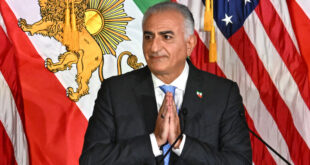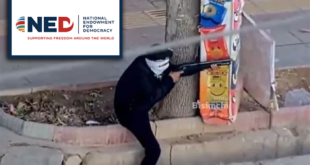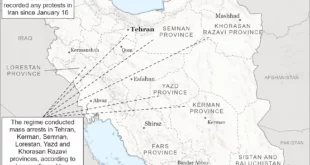 TEHRAN (FNA)- Secretary-General of the Headquarters for Remembering Muslim World’s Martyrs, Forooz Rajai-Far, warned that a US interests office in Iran would be a base for espionage and plotting against Iran.
TEHRAN (FNA)- Secretary-General of the Headquarters for Remembering Muslim World’s Martyrs, Forooz Rajai-Far, warned that a US interests office in Iran would be a base for espionage and plotting against Iran.
Rajai-Far made the remarks while addressing a students conference in Mazandaran province, in northern Iran.
Tehran says that it has not yet received any such request, and that it would consider the proposal once it is extended to Iran officially.
Washington has recently been reportedly mulling opening an interests section in the Islamic Republic. The United States and Iran broke diplomatic relations in April 1980, after Iranian students seized the United States’ espionage center at its embassy in the heart of Tehran. The two countries have had tense relations ever since.
Relations between the two arch foes deteriorated after Tehran’s progress in the civilian nuclear technology. Washington and its Western allies accuse Iran of trying to develop nuclear weapons under the cover of a civilian nuclear program, while they have never presented any corroborative evidence to substantiate their allegations. Iran denies the charges and insists that its nuclear program is for peaceful purposes only.
Tehran stresses that the country has always pursued a civilian path to provide power to the growing number of Iranian population, whose fossil fuel would eventually run dry.
Despite the rules enshrined in the Non-Proliferation Treaty (NPT) entitling every member state, including Iran, to the right of uranium enrichment, Tehran is now under three rounds of UN Security Council sanctions for turning down West’s illegitimate calls to give up its right of uranium enrichment.
Tehran has dismissed West’s demands as politically tainted and illogical, stressing that sanctions and pressures merely consolidate Iranians’ national resolve to continue the path.
Iran insists that it should continue enriching uranium because it needs to provide fuel to a 300-megawatt light-water reactor it is building in the southwestern town of Darkhoveyn as well as its first nuclear power plant in the southern port city of Bushehr.
Iran currently suffers from an electricity shortage that has forced the country into adopting a rationing program by scheduling power outages – of up to two hours a day – across both urban and rural areas.
Iran plans to construct additional nuclear power plants to provide for the electricity needs of its growing population.
The Islamic Republic says that it considers its nuclear case closed as it has come clean of IAEA’s questions and suspicions about its past nuclear activities.
 Eurasia Press & News
Eurasia Press & News



